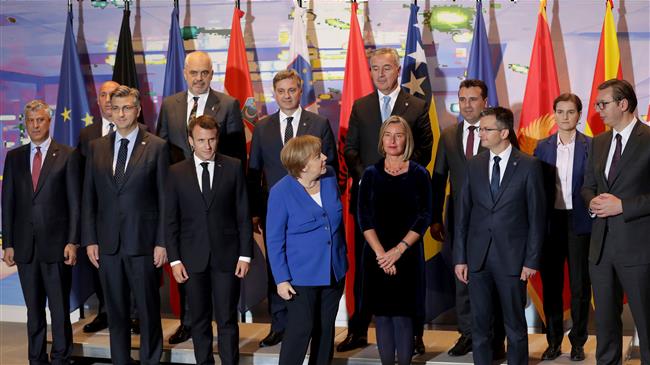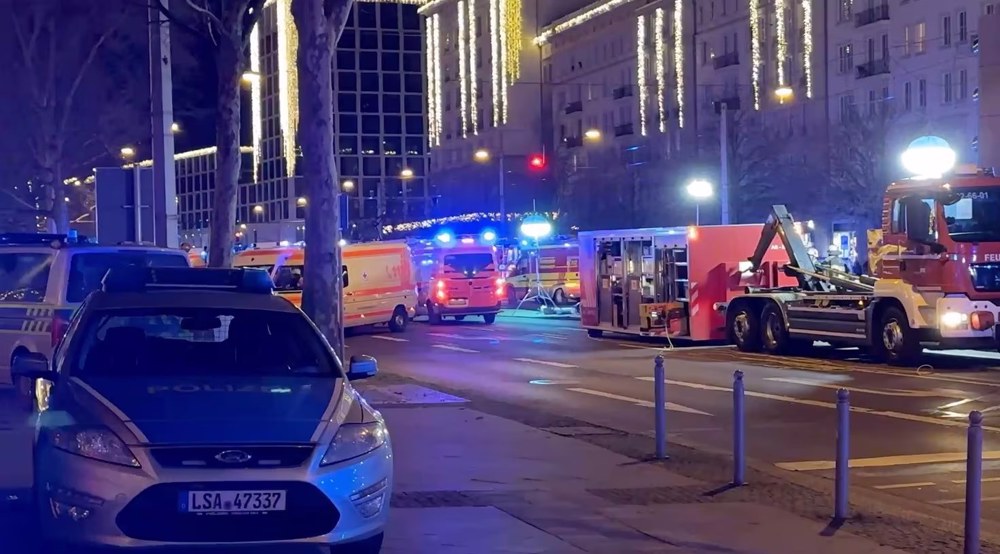Kosovo, Serbia agree to restart talks after European push
Serbia and Kosovo have agreed to restart deadlocked talks to resolve long-standing differences later this year following mediation by France and Germany.
At a summit in the German capital, Berlin, on Monday, Kosovo’s President Hashim Thaci and Serbia’s President Aleksandar Vucic agreed to meet again in the French capital, Paris, in early July.
A German government spokesman confirmed that agreement in a statement early on Tuesday.
Relations between Kosovo and Serbia have taken a turn for the worse since negotiations over an exchange of territory and border changes collapsed last year.
The Berlin summit had been organized by German Chancellor Angel Merkel and French President Emmanuel Macron. European Union (EU) foreign policy chief Federica Mogherini and the heads of states and governments from Bosnia and Herzegovina, Croatia, Montenegro, and Slovenia were also present at the talks.
Merkel said that everyone had “agreed to this joint initiative because we are committed to the European perspective of the Western Balkans countries.”
“It is in Europe’s interest that there is positive development in this region,” she said.

Macron said that EU membership prospects for Serbia had not been on the agenda in Berlin but remained in the hands of the European Commission.
“Rather, this is about a policy of stability that we want for the region,” he said, referring to the aim of the summit.
Serbia is required to normalize its ties with Kosovo and harmonize its foreign policy with that of the EU in order to meet the criteria for membership in the bloc, which it seeks.
Kosovo declared independence from Serbia in 2008, after fighting a war in 1998-1999 that ended with a NATO intervention. Serbia, which refuses to accept its former southern province as an independent state, has so far blocked it from joining the United Nations (UN) and other international bodies.

Kosovo is, however, recognized by 117 countries as an independent state, including the United States and most members of the EU.
EU too weak to lead talks: Kosovo
After the closed-door summit, Kosovo’s president ruled out the prospect of an agreement with Belgrade without the participation of the United States, even as he said he agreed to continue the talks.
He said that the EU was “too weak and disunited” to steer negotiations between the two governments.
The two leaders suggested at a meeting in Australia last year that a final settlement could include an exchange of territory and border changes between the two countries. While the details of a border plan have not been revealed, local media say any land swap would see Kosovo’s Serb-dominated north traded for a southern valley in Serbia that is mainly ethnic-Albanian, as is the rest of Kosovo.
Germany, however, has remained a tough critic of any border changes, over concerns that it would further segregate the region along ethnic lines.
Israel indicts two settlers over suspected spying for Hezbollah
Iran: US airstrikes on Yemen war crimes, violation of international law
Yemeni armed forces down F-18 fighter jet, repel US-UK attack: Spokesman
Iran warns against US-Israeli plot to weaken Muslims, dominate region
VIDEO | Public uproar in US against Israeli regime
‘Ghost town’: 70% of Jabalia buildings destroyed by Israel
Mother’s Day: Sareh Javanmardi’s inspiring journey as Paralympic champion and mother
Russia downs over 40 Ukrainian drones as Putin vows 'destruction' on Kiev












 This makes it easy to access the Press TV website
This makes it easy to access the Press TV website